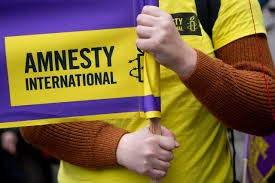Findings from Tunisian and international organisations, as well as UN bodies, over the past two years indicate that Tunisia cannot be considered a ‘Place of Safety’ for people intercepted or rescued at sea, most notably Black people as defined by the 1979 SAR Convention, the Maritime Safety Committee (MSC) and UN bodies.
Despite being a party to the 1951 UN Refugee Convention, Tunisia has no national asylum law or system. People who enter, stay in, or exit the country irregularly are criminalised by law. Following interceptions at sea or after arbitrary arrests on Tunisian territory, Tunisian authorities have repeatedly abandoned refugees, asylum seekers, and migrants in the Tunisian desert or remote border regions with Libya and Algeria.
These practices can amount to unlawful collective expulsions, demonstrate a total disregard for refugees’ and migrants’ right to life, and may violate the principle of non-refoulement. People expelled face the risk of serious human rights violations in Libya and onward expulsions from Algeria to Niger.
According to reports citing information from the UN, Tunisian security forces have notably rounded up people presumed to be irregular migrants on land and directly transferred them to Libyan authorities, who subsequently subjected them to arbitrary detention, forced labour, extortion, torture and other ill-treatment, and unlawful killings.
According to the accounts of refugees, migrants and asylum seekers documented by Amnesty International, Human Rights Watch, OMCT, and Alarm Phone, Tunisian authorities at sea have committed abuses and put lives at risk during boat interceptions – including by high-speed manoeuvres threatening to capsize the boats, physical violence, firing tear gas at close range, and colliding with the boats – followed by a failure to ensure individualiSed assessments of protection needs at disembarkation systematically.
Tunisian authorities have also subjected refugees, asylum seekers and migrants to torture and other ill-treatment in the contexts of disembarkations, detention, or collective expulsions.
At the same time, several international and local organisations, human rights defenders and lawyers have reported an alarming deterioration of civil liberties and fundamental rights in Tunisia, impacting both the migrant population and Tunisian citizens.
Since 2021, the country has witnessed a significant rollback of human rights, characterised by a dismantling of institutional safeguards for their protection, an erosion of judicial independence and a clampdown on freedom of expression, association and peaceful assembly.
The disembarkation in Tunisia of Tunisian nationals intercepted or rescued at sea, which could include people fleeing persecution, torture or other serious harm and intending to seek asylum abroad, could effectively deny the right to seek asylum to those in need of international protection.




